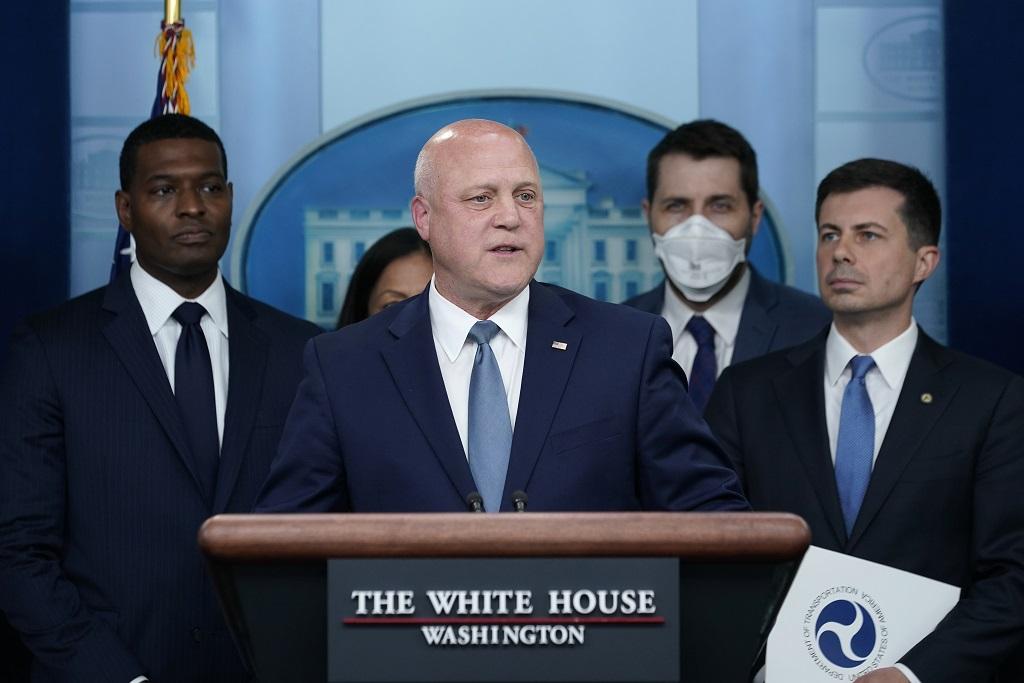
May 30, 2022
Biden’s Main Legislative Accomplishment Is in One Man’s Hands
Mitch Landrieu is overseeing the bipartisan infrastructure law. His record does not inspire confidence in how that might be handled.
May 25, 2022 | Revolving Door Project Newsletter
The Filth Circuit Takes a Wrecking Ball to Precedent
Over the past week Biden invoked the Defense Production Act to require that the ingredients necessary for baby formula go to formula manufacturers first, and initiated Operation Fly Formula, using military planes to fly the equivalent of 1.5 million bottles of hypoallergenic formula across the Atlantic. It’s good to see the White House roused to take action, and to use emergency presidential powers to protect people in need. That’s what emergency powers are for.

May 24, 2022
The Crypto Reading List
Crypto’s ongoing blitz of advertisements that package speculation and fear of missing out (FOMO) in glittering terms is a danger to consumers all over the world. Below is a list of resources that will help the public see beyond the marketing hype and garner a true understanding of crypto assets and the industry at large.
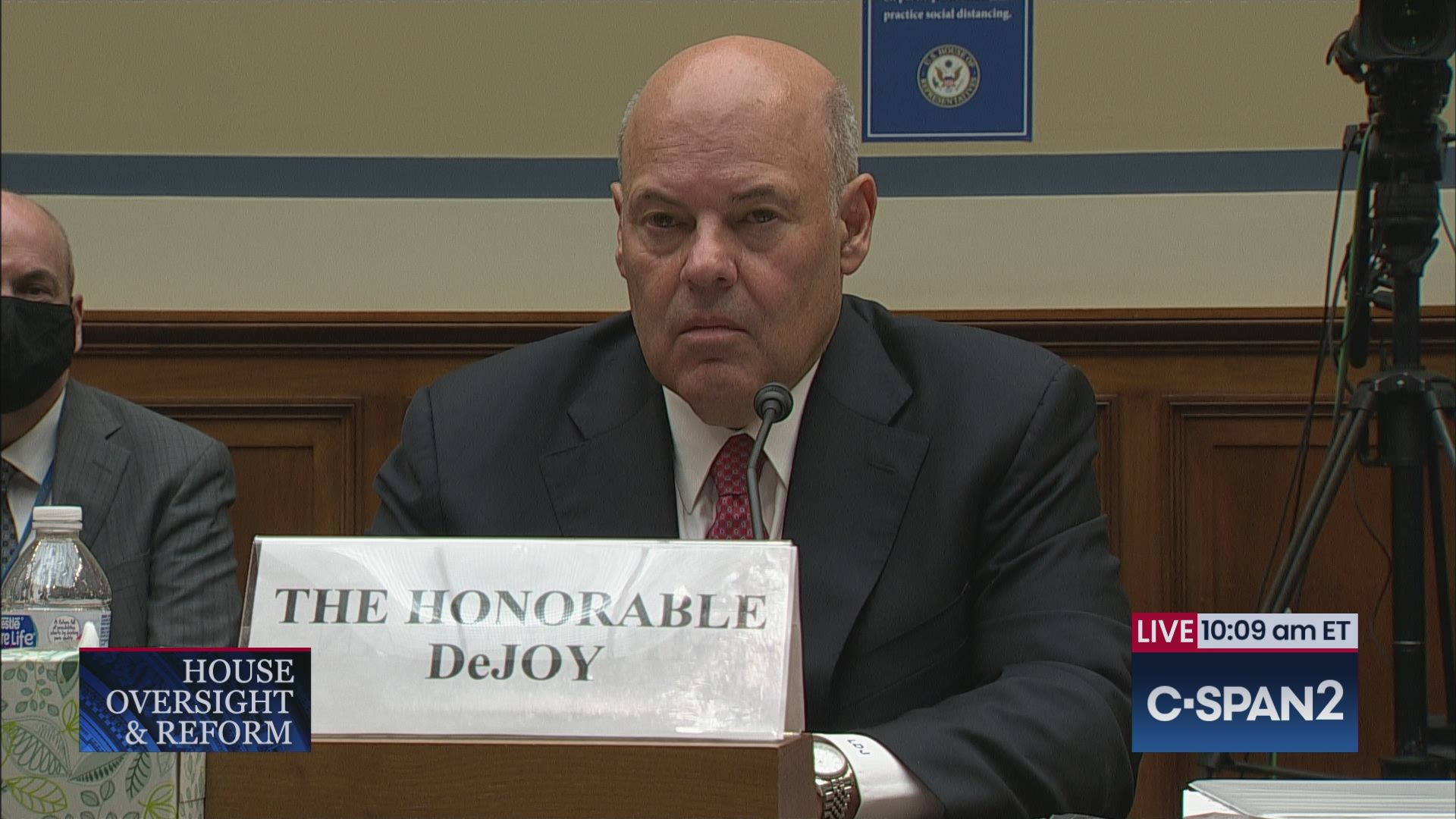
May 18, 2022
Will The New Postal Board Fire Louis DeJoy?
Probably not, thanks in part to some of Biden’s own board nominees.

May 17, 2022
Mekedas Belayneh Dorothy Slater
Blog Post Climate and EnvironmentExecutive BranchIndependent Agencies
One Weird Trick To Prevent the TVA From Building New Gas Plants
The Tennessee Valley Authority, an independent agency of the federal government which acts as a public utility for over 10 million residents in and around Tennessee, announced in March that it would replace two aging coal-fired power plants with gas-powered plants. As the nation’s largest public utility company, the move goes against Biden’s goal to achieve a clean energy grid by 2035. TVA could be leading the charge for renewables, but its fossil fuel CEO Jeff Lyash, who comes out of fossil fuels, is instead choosing to lock in polluting gas for decades. This does not have to be the case.
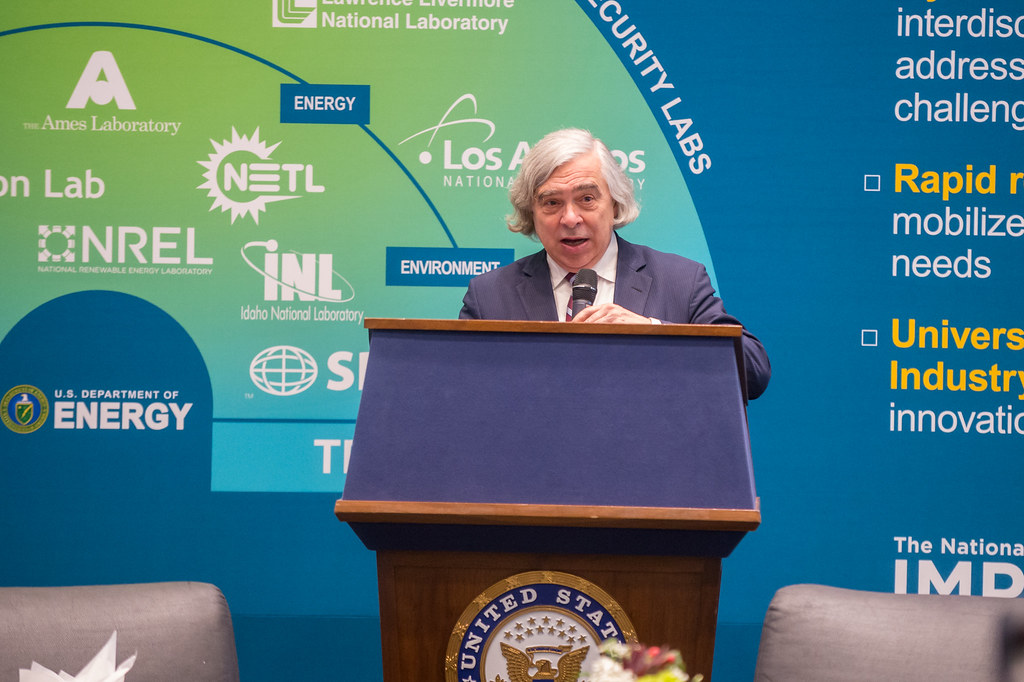
May 17, 2022
Hannah Story Brown Dylan Gyauch-Lewis
Blog Post Climate and EnvironmentExecutive BranchRevolving Door
Don't Give Gina McCarthy's Job To Ernest Moniz
We are firmly on track toward an unlivable world. And a man whose entire career is marked by hubris and greed, who touts the false benefits of methane gas and makes millions from fossil fuel firms and their allies, is being raised as a candidate for White House National Climate Advisor. To put our position plainly, “No.”
May 11, 2022 | Revolving Door Project Newsletter
Environmental Quality, Justice, Enforcement, Oh My!
Tuesday dawned with the unwelcome news that Antitrust Chief Jonathan Kanter has been indefinitely barred from working on the anti-monopoly case against Google while the Justice Department decides whether his past work representing Google’s critics should require his recusal. This, despite the fact that none of his past clients are parties in the Google case at issue.
April 27, 2022 | Revolving Door Project Newsletter
Eleanor Eagan Hannah Story Brown
Climate and EnvironmentCongressional OversightCorporate CrackdownIndependent Agencies
More “Terrifying” Enforcement Please
On Earth Day 2021, President Biden affirmed his administration’s commitment to bold climate action that would set the world on a path to less than 1.5 degrees Celsius of warming. In the days leading up to this year’s Earth Day, in contrast, his Interior Department announced that it would reopen oil and gas lease sales on public lands. That’s bad enough. At least as alarming, however – if not more, quite frankly – is what his administration still isn’t doing to avoid catastrophic climate change.
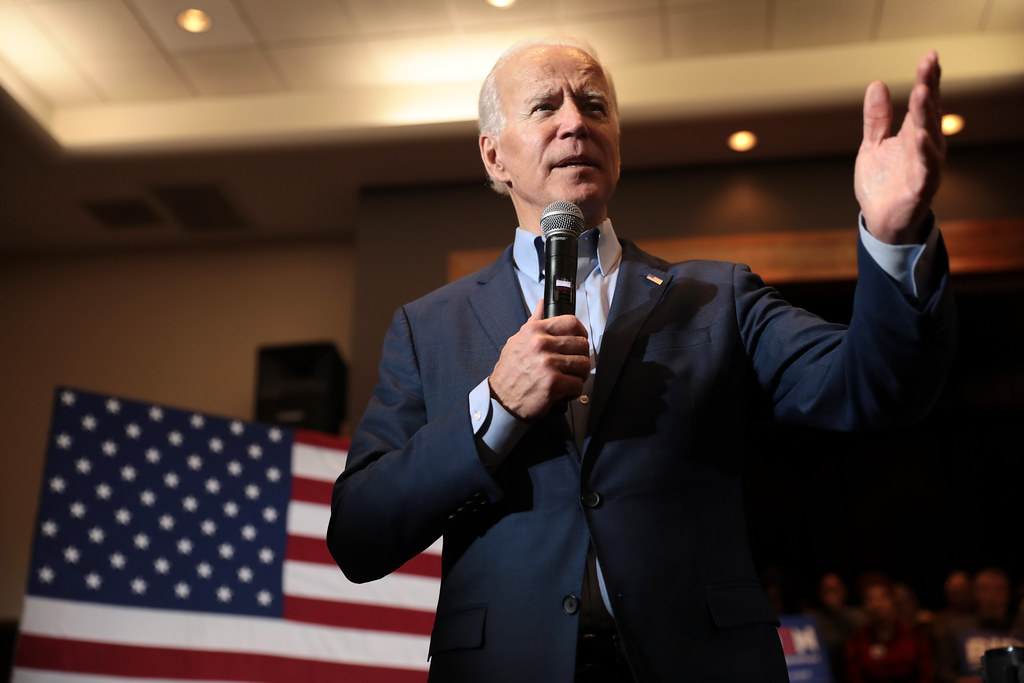
April 25, 2022
Blog Post 2020 Election/TransitionClimate and EnvironmentEthics in GovernmentExecutive BranchJeff ZientsRevolving Door
What You Need To Know About The Contenders For Biden’s Next Chief Of Staff
Nearly halfway through President Biden’s second year in office, with midterms on the horizon and senior staff either burning out or eager to sell out, “Transition 2.0” — the rapid departure of said senior staff with an influx of new personnel — is growing closer. One position we’re keeping a close eye on is Biden’s next Chief of Staff. Currently filled by Ron Klain, this is Biden’s de facto power broker. He helps the president make decisions and acts as a gatekeeper for the many, MANY forces, good and bad, who’d like to influence the president.

April 25, 2022 | The New Republic
How Biden Can Halt the U.S. Postal Service’s Gas-Guzzling Plan
Just days after his inauguration, President Biden promised to use the federal government’s procurement authority to achieve a zero-emission fleet of government vehicles. This spring, however, that’s led to a standoff with the United States Postal Service—an independent agency overseen by a Trump-aligned postmaster general who wants to replace 225,000 out-of-date mail delivery trucks with fresh gas-guzzlers, to the tune of $11.3 billion.

April 22, 2022
First Chapter of Multi-Part Climate Report Documents Executive Action Opportunities At Energy Department
This chapter focuses on the Department of Energy, while later chapters explore the opportunities available to the EPA, Departments of Agriculture, Interior, Justice and other executive branch agencies.

April 08, 2022
The Stakes Are High For The EPA’s Newly Appointed Chemical Review Director
Denise Keehner is expected to start on Monday as the Environmental Protection Agency’s new director of the Office of Pollution Prevention and Toxics (OPPT), Bloomberg Law reported last week. Keehner is a former EPA official currently employed by Maryland’s Department of the Environment.
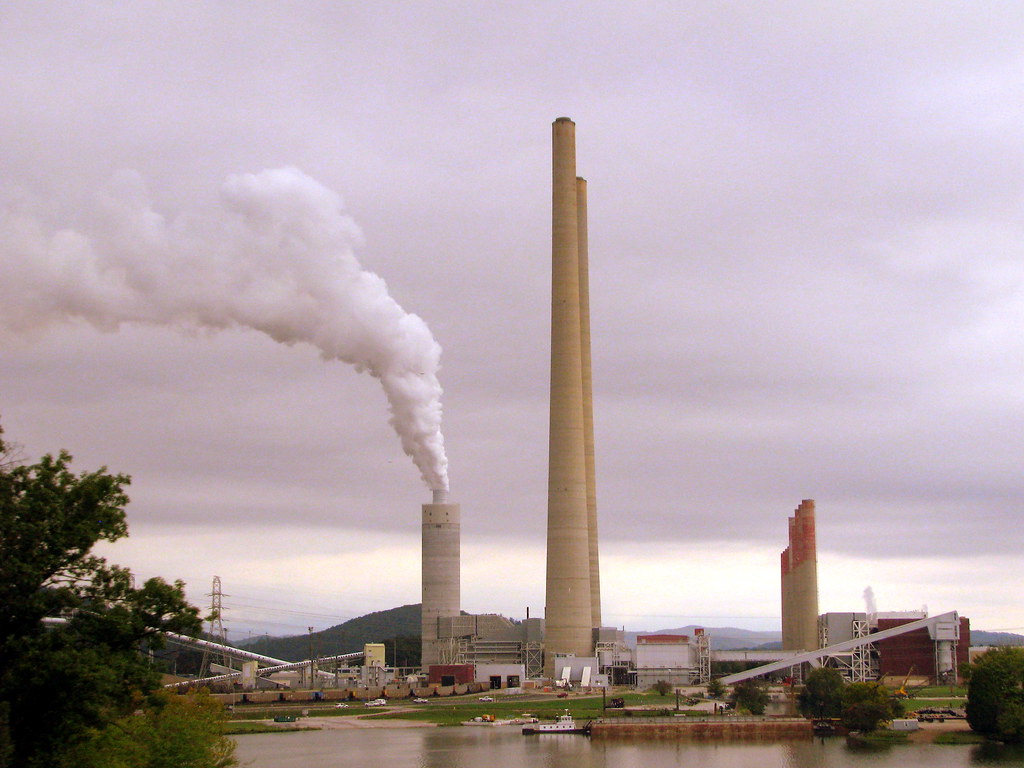
March 21, 2022
This Federally Owned Public Utility Company Is Run by a Former Fossil Fuel Executive Who Makes $10 Million
The Tennessee Valley Authority could be leading the country toward renewables. Instead, it gets huge chunks of its power generation from coal and methane.

March 16, 2022
To Take Down Corporate Polluters, the DOJ's Environmental Enforcer Needs More Capacity
Overseen by Assistant Attorney General Todd Kim, the Environment and Natural Resources Division (ENRD) is one of seven litigating components of the Department of Justice (DOJ). The ENRD is divided into ten sections, each with its own area of expertise. The Division fulfills a wide range of responsibilities. For instance, the ENRD is tasked with protecting the nation’s natural resources and enforcing U.S. civil and criminal environmental laws, including the Clean Water Act, Clean Air Act, and hazardous waste laws. The Division also handles tribal rights and resources cases. Other responsibilities include, but are not limited to, “facilitating cleaner energy and ensuring marketplace integrity; defending and adjudicating water rights for Federal agencies and Indian Tribes, as well as policies and decisions that support the generation of clean energy on Federal lands and the outer continental shelf; and, promoting international climate justice activities and the advancement of legislative and policy matters related to climate change.”
March 16, 2022 | Revolving Door Project Newsletter
Facing Rising Prices and Falling Political Fortunes, Biden Needs to Go on Offense
With each passing day, Biden and his party appear to be facing ever more severe political headwinds. Inflation remains elevated, with a new variant threatening to further aggravate supply chain problems. Meanwhile, the (warranted) response to the war in Ukraine has specifically pushed gas prices upwards. Add to this that the Federal Reserve appears eager to throw millions out of work to slow the economy and that some of Biden’s outstanding nominations are in peril thanks to his own, uncooperative co-partisans, and things are undoubtedly looking bleak.
